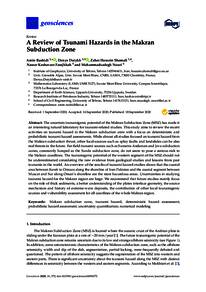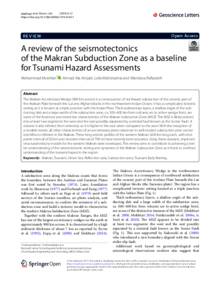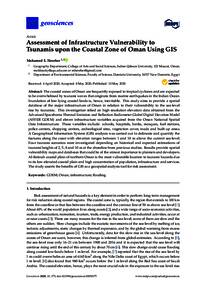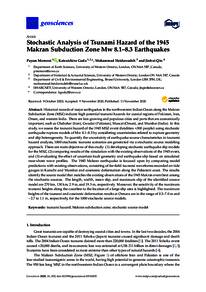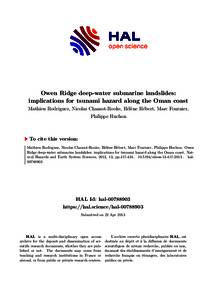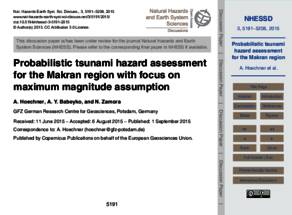Document
A review of tsunami hazards in the Makran subduction zone.
Identifier
DOI: 10.3390/geosciences10090372
Source
Geosciences (Switzerland). v. 10, 9, 372, p. 1-31
Contributors
Dutykh, Denys., Author
Shomali, Zaher Hossein., Author
Farajkhah, Nasser Keshavarz., Author
Nouri, Mohammadsadegh., Author
Country
Switzerland
City
Basel
Publisher
MDPI AG.
Gregorian
2020-09-01
Language
English
Subject
English abstract
The uncertain tsunamigenic potential of the Makran Subduction Zone (MSZ) has made it an interesting natural laboratory for tsunami-related studies. This study aims to review the recent activities on tsunami hazard in the Makran subduction zone with a focus on deterministic and probabilistic tsunami hazard assessments. While almost all studies focused on tsunami hazard from the Makran subduction thrust, other local sources such as splay faults and landslides can be also real threats in the future. Far-field tsunami sources such as Sumatra-Andaman and Java subduction zones, commonly lumped as the Sunda subduction zone, do not seem to pose a serious risk to the Makran coastlines. The tsunamigenic potential of the western segment of the MSZ should not be underestimated considering the new evidence from geological studies and lessons from past tsunamis in the world. An overview of the results of tsunami hazard studies shows that the coastal area between Kereti to Ormara along the shoreline of Iran-Pakistan and the coastal segment between Muscat and Sur along Oman’s shoreline are the most hazardous areas. Uncertainties in studying tsunami hazard for the Makran region are large. We recommend that future studies mainly focus on the role of thick sediments, a better understanding of the plates interface geometry, the source mechanism and history of extreme-wave deposits, the contribution of other local tsunamigenic sources and vulnerability assessment for all coastlines of the whole Makran region.
ISSN
2076-3263
Resource URL
Category
Journal articles

